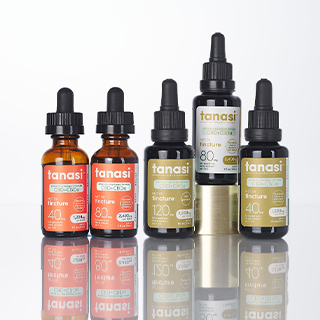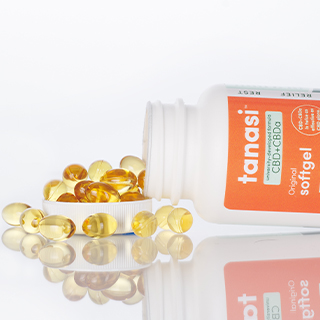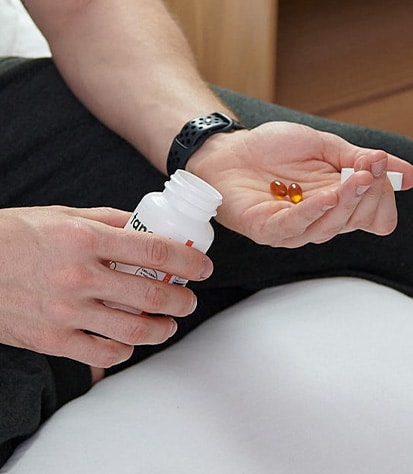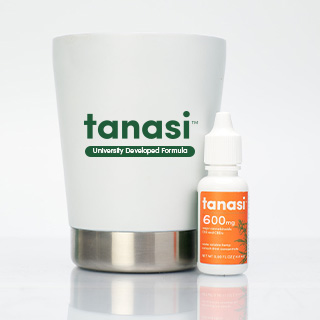CBD Effects on Serotonin
Posted on August 16th, 2020
While much of the research into the proposed health benefits of cannabidiol (CBD) is still underway, this molecule is showing tremendous potential. CBD is a naturally occurring chemical compound found in the cannabis plant. Even though it is similar to tetrahydrocannabinol (THC), CBD doesn’t possess the psychoactive properties of THC, which means that its use doesn’t induce a “high”.
While prescription drugs are still crucial in treating or managing depression and anxiety, most of these drugs have been found to cause some serious side effects, including mood swings, sexual dysfunction, sleeplessness, and so on. Initial studies have shown that CBD may be able to help manage symptoms of several conditions while exhibiting very few if any side effects in most people. Research has suggested that CBD has the potential to help manage the symptoms of depression thanks to its positive interaction with serotonin receptors found in the brain.
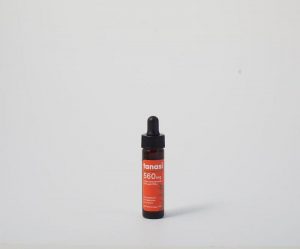 CBD and How It Interacts With the Body
CBD and How It Interacts With the Body
While many people know about CBD and its effects on the endocannabinoid system, it isn’t the only body system that is directly impacted by CBD. The endocannabinoid system is responsible for regulating the immune and nervous system in the body. However, the serotonin system also plays a crucial role in this process.
Before delving further, it is important to note that the human body, through the endocannabinoid system, produces its own cannabinoids, referred to as endocannabinoids, with the most notable one being anandamide. Anandamide interacts with cannabinoid receptors CB1 and CB2 to bring about different effects in the body. The CB1 are cannabinoid receptors found in the brain, while CB2 receptors are found in the immune cells. Thus, through the CB1 and CB2 receptors, the endocannabinoid system plays a crucial role in regulating many bodily functions. The use of CBD has the potential to help increase the levels of anandamide in the brain.
You should know that the CB1 and CB2 receptors aren’t the only molecules that interact with the body’s endocannabinoid system. Serotonin is a neurotransmitter that is essential to our overall wellbeing. The serotonin system regulates most of the same processes as the endocannabinoid system. However, it achieves this via other receptors that are also impacted by anandamide and CBD.
What Is Serotonin?
Serotonin, which is also referred to as 5-hydroxytryptamine, is a neurotransmitter that sends signals between nerve cells, which in turn helps to regulate sleep, memory, social behavior, mood, sexual desires, and many other functions. It significantly helps to maintain the balance of our bodies.
This molecule is produced by the body in the gastrointestinal tract and also within the brain. About 90% of the serotonin in our bodies is actually produced in the intestines, specifically in the enterochromaffin cells. In the intestines, serotonin is responsible for regulating gastrointestinal motility. In the central nervous system, serotonin helps in controlling learning, mood, sleep, cognition, memory, e.t.c. This molecule helps to regulate sleep by releasing the hormone melatonin, which controls sleep cycles. Serotonin is also produced in the body by blood platelets, and this might help increase the process of healing.
One important thing to know is that serotonin doesn’t cross the blood to brain barrier. The serotonin to be utilized by the central nervous system must be produced within the brain.
Even though there are many different chemicals that are responsible for influencing our moods, an alteration in serotonin production or the reduction in the levels of serotonin in the body has been found to put people at greater risk of developing conditions such as depression, insomnia, and anxiety.
However, research suggests that CBD may help to produce similar effects to that of serotonin. CBD might interact with and activate serotonin receptors in the brain, known as 5-HT1A. This is what is believed to provide CBD its potential antidepressant and anti-anxiety properties. This could mean that the use of CBD may be able to offset the effects of low serotonin levels in the body.
CBD Effects on Serotonin
The effects of the CBD molecule on the serotonin system have just but recently been recognized. This is all thanks to a growing body of research on CBD, as studies on this substance are just in their infancy stages. However, much further research is needed to fully understand how CBD might affect serotonin in the body.
By now, you are aware that CBD offers great potential in managing symptoms of stress, anxiety, and depression. However, what you might not have been aware of is that it is able to achieve this not only through the CB1 receptor but also through the 5-HT1A receptor. This is the serotonin receptor in the brain.
Research conducted by leading scientists at the University of Sao Paolo and King’s College in London found that increased CBD intake in the body may directly activate the 5-HT1A serotonin receptor. In turn, this might bring about the anti-anxiety effect. The 5-HT1A is a G protein-coupled receptor that is linked with a wide range of neurological and biological body functions. It falls under the group 5-HT receptors. These are receptors that are activated by the molecule serotonin.
This research aimed at finding natural ways and non-pharmaceutical ways of enhancing brain serotonin function to influence more positive mood and behavior. However, it is important to note that this research focused on animals. And, not much research has been done on human subjects using CBD as a method for targeting symptoms of depression.
 How Do the Effects of CBD Impact Serotonin?
How Do the Effects of CBD Impact Serotonin?
A 2005 study published in Neurochemical research sought to explore how CBD interacts with the serotonergic system. The findings of the study indicated that CBD may serve as an agonist at the 5-HT1A receptor. An agonist is a substance that binds to a synaptic receptor, and it increases the effects of the neurotransmitter. This means that CBD might bind to the 5-HT1A receptor and could potentially increase the effect of the serotonin.
Another study published in European Neuropsychopharmacology found that by blocking serotonin receptors, the subjects could no longer access the potential antidepressant effects of CBD. This means that CBD and the serotonergic system could be closely connected, and may influence each other.
The serotonin receptor 2A or 5-HT2A is linked with anxiety, headaches, and stress. Even though CBD has very little connection to this receptor, CBD’s presence might have a slight effect on its shape. This alteration in shape may cause an indirect effect, and potentially inhibit certain harmful molecules from binding to the receptor. Due to this effect, CBD may have the potential to lower the risks of psychoticism.
The serotonin receptor 3A or 5-HT3A is connected with mood, pain, and nausea. The interaction of CBD and this receptor may reduce nausea and vomiting. As such, molecules that interact with this receptor in a similar way are often used on patients undergoing chemotherapy to reduce feelings of nausea and vomiting. Additionally, the endocannabinoid anandamide produces the same effects on this receptor. And considering that CBD intake may help to promote the production of anandamide in the body, the results could be even more beneficial.
Using CBD
Selective Serotonin Reuptake Inhibitors, or simply SSRIs, are the most widely prescribed class of antidepressants. As discussed earlier, lower levels of serotonin in the body have been linked to increased risk of depression and anxiety. These drugs work by inhibiting or minimizing the reuptake of serotonin in your brain. As a result, there will be more serotonin left in circulation to do its function.
However, these pharmaceutical drugs have been found to cause varying side effects, including; tremors, sexual dysfunction, sleep problems, nervousness, and nausea. SSRIs drugs have been found to be highly addictive, which can be an issue for most patients. In addition, some antidepressant prescriptions take a long time before seeing any significant improvement. However, according to a study carried out in 2019 on animal subjects, CBD may work quickly and could help reduce symptoms of anxiety.
Further research is still required in order to have a better understanding of how the effects of CBD may impact symptoms of depression, however, it is generally considered safe to use. Once cleared by your doctor, look for reputable CBD companies that offer transparency on their products. Many trusted sources will offer a certificate of analysis from third-party lab tests. And while CBD is federally legal, be sure to check with state and local laws on CBD use in your area.
Despite the many potential benefits of CBD, you shouldn’t use it as a replacement for your prescription drugs. You should always use your medications exactly as prescribed by the doctor. Keep in mind that if you suddenly stop taking your medications, then you risk suffering from serious side effects. As with any new supplement or medication, it is always important to first consult your doctor.

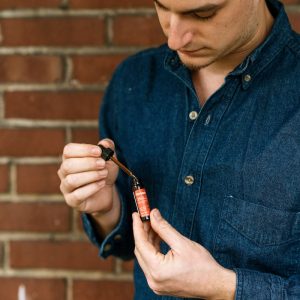 How Do the Effects of CBD Impact Serotonin?
How Do the Effects of CBD Impact Serotonin?